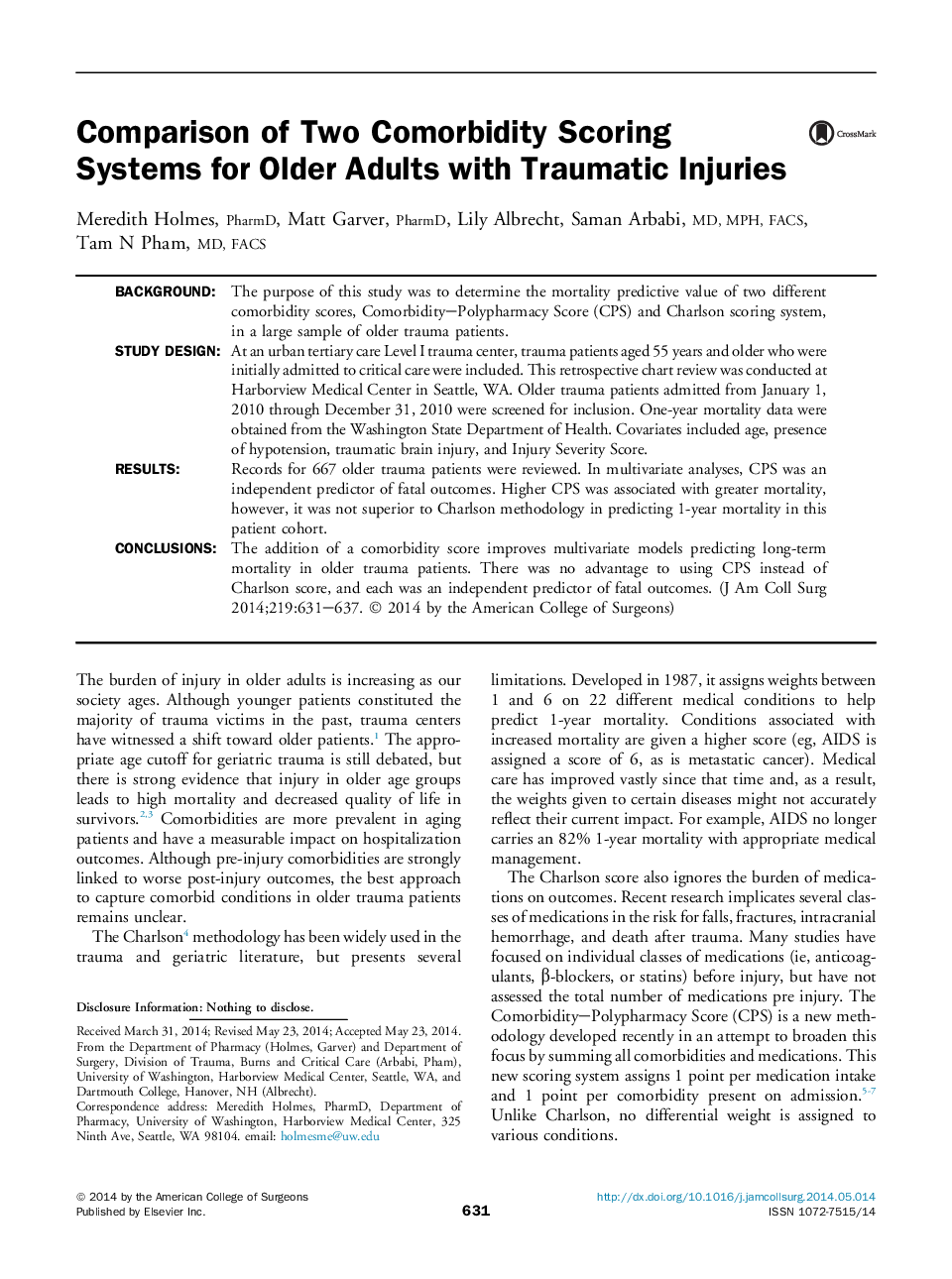| Article ID | Journal | Published Year | Pages | File Type |
|---|---|---|---|---|
| 4291479 | Journal of the American College of Surgeons | 2014 | 7 Pages |
BackgroundThe purpose of this study was to determine the mortality predictive value of two different comorbidity scores, Comorbidity–Polypharmacy Score (CPS) and Charlson scoring system, in a large sample of older trauma patients.Study DesignAt an urban tertiary care Level I trauma center, trauma patients aged 55 years and older who were initially admitted to critical care were included. This retrospective chart review was conducted at Harborview Medical Center in Seattle, WA. Older trauma patients admitted from January 1, 2010 through December 31, 2010 were screened for inclusion. One-year mortality data were obtained from the Washington State Department of Health. Covariates included age, presence of hypotension, traumatic brain injury, and Injury Severity Score.ResultsRecords for 667 older trauma patients were reviewed. In multivariate analyses, CPS was an independent predictor of fatal outcomes. Higher CPS was associated with greater mortality, however, it was not superior to Charlson methodology in predicting 1-year mortality in this patient cohort.ConclusionsThe addition of a comorbidity score improves multivariate models predicting long-term mortality in older trauma patients. There was no advantage to using CPS instead of Charlson score, and each was an independent predictor of fatal outcomes.
